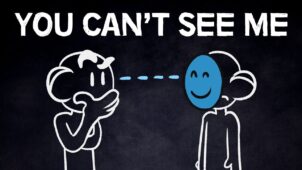Before the Age of Reason: How did we think BEFORE Socrates came along? youtu.be
Nietzsche’s perspective on arguing as a tool for the weak is deeply rooted in his critique of Socratic philosophy, particularly as manifested in the figure of Socrates. Nietzsche sees Socrates as a pivotal figure who ushered in a philosophical tradition that placed excessive emphasis on rational argumentation and dialectics. Rather than celebrating Socrates as a positive force for philosophy, Nietzsche views him as a symptom of cultural decline, particularly within Greek society.
Socratic Influence and Cultural Decline
Nietzsche argues that Socrates’ method of relentless questioning and demand for rational justifications undermined the traditional values and strengths of Greek culture. Instead of relying on instinct, strength, and action, as exemplified by figures like the Athenian elites, Socrates introduced a new ethos where reason became paramount. This, Nietzsche believes, led to a decline in the vitality and confidence of Greek culture.
The Melian Dialogue: Power vs. Justification
The Melian Dialogue serves as a prime example for Nietzsche’s argument. In this historical exchange during the Peloponnesian War, the Athenians, representing power, demand submission from the Melians, who represent weakness. The Athenians do not bother with elaborate justifications; they simply assert their dominance. This demonstrates Nietzsche’s assertion that those with power act according to their will, while the weak seek to justify their actions through dialectics.
The Rise of Slave Morality
Nietzsche introduces the concept of “slave morality,” which he sees as a consequence of Socratic influence. This morality, born out of resentment and weakness, seeks to overturn traditional values of strength and assertiveness. Socrates, as a member of the lower classes, embodies this shift from a noble, aristocratic ethos to one based on reason and justification.
Critique of Rationality and Justification
Nietzsche challenges the modern reliance on rationality and justification, arguing that it reflects a loss of confidence and strength. He suggests that the incessant questioning and demand for reasons are signs of cultural decay, as they undermine the natural instincts and impulses that should guide human action.
The Search for a New Ideal
Despite his critique, Nietzsche does not offer a straightforward solution. He calls for a return to a “master morality,” where individuals create their own values based on strength and assertion. However, he acknowledges the difficulty of achieving this in a world dominated by rationality and moral codes derived from weakness.
Conclusion
Nietzsche’s critique of arguing as a tool for the weak is deeply intertwined with his broader analysis of the cultural shifts brought about by Socratic philosophy. He challenges the modern emphasis on rational justification, arguing that it reflects a loss of vitality and confidence. While he calls for a return to a more assertive ethos, he recognizes the challenges inherent in such a transformation.








Leave Your Comment